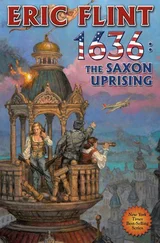Eric Flint - The tide of victory
Здесь есть возможность читать онлайн «Eric Flint - The tide of victory» весь текст электронной книги совершенно бесплатно (целиком полную версию без сокращений). В некоторых случаях можно слушать аудио, скачать через торрент в формате fb2 и присутствует краткое содержание. Жанр: Альтернативная история, на английском языке. Описание произведения, (предисловие) а так же отзывы посетителей доступны на портале библиотеки ЛибКат.
- Название:The tide of victory
- Автор:
- Жанр:
- Год:неизвестен
- ISBN:нет данных
- Рейтинг книги:3 / 5. Голосов: 1
-
Избранное:Добавить в избранное
- Отзывы:
-
Ваша оценка:
- 60
- 1
- 2
- 3
- 4
- 5
The tide of victory: краткое содержание, описание и аннотация
Предлагаем к чтению аннотацию, описание, краткое содержание или предисловие (зависит от того, что написал сам автор книги «The tide of victory»). Если вы не нашли необходимую информацию о книге — напишите в комментариях, мы постараемся отыскать её.
The tide of victory — читать онлайн бесплатно полную книгу (весь текст) целиком
Ниже представлен текст книги, разбитый по страницам. Система сохранения места последней прочитанной страницы, позволяет с удобством читать онлайн бесплатно книгу «The tide of victory», без необходимости каждый раз заново искать на чём Вы остановились. Поставьте закладку, и сможете в любой момент перейти на страницу, на которой закончили чтение.
Интервал:
Закладка:
The general, again, as he had so many times since Calopodius returned, felt a wave of grief and guilt wash over him.
It's not your fault, insisted Aide.
Of course it is, replied Belisarius. It was I-no other man-who sent that boy into harm's way. Told him to hold a position which was key to my campaign plans, knowing full well that for such a boy that order was as good as if a god had given it. I might as well have asked him to fall on his sword, knowing he would.
Other boys will live because of it. Thousands of them in this very place-Punjabi boys as well as Roman ones.
Belisarius sighed. That's not the point, Aide. I know that's true, which is why I gave the order in the first place. But that order-and its consequences-remain mine to bear. No one else. Nor can I trade it against other consequences, as if ruthlessness was a commodity which can be exchanged in a village market. A sin is a sin, and there's an end to it.
Calopodius interrupted the silent exchange. Rising to his feet, he asked: "Can I be of service, General?"
Some part of Belisarius' mind was fascinated to note that the blind youth was already able to distinguish one man's footsteps from another. But that part was pushed far down, while another part-much closer to the man's soul-came to the fore.
He strode forward and swept the boy into his embrace. Then, fighting to keep his voice even and hold back the tears, whispered: "I am sorry for your eyes, Calopodius. If I could give you back your sight with my own, I would do so. I swear I would."
Awkwardly, the boy returned the embrace. Patting the general's back as if, for all the world, he was the adult comforting the child.
"Oh, I wouldn't want you to do that, sir. Really, I wouldn't. We will need your eyes more than mine, in the time to come. This war isn't over yet. Besides-"
He hesitated, then cleared his throat. "Besides, I've been thinking a lot. And, if you'd be willing, there is a great favor you could do for me."
Belisarius pushed himself away and held the lad by both shoulders. "You need but ask. Anything."
Calopodius gestured toward the secretary sitting at the desk. "Well, it's this. I got to thinking that Homer was said to be blind, too. And who ever got as much fame and glory as he did? He'll be remembered as long as Achilles, after all. Maybe even longer."
Before Belisarius could respond, Calopodius was waving his hands in a little gesture of denial. "Not me, of course! I tried my hand at poetry once, but the results were awful. Still, I am good at rhetoric and grammar, and I think my prose is pretty good. So-"
Calopodius took a deep breath, as a boy does before announcing a grandiose ambition to a skeptical world. "So I decided to become an historian. Polybius is just as famous as the men he wrote about, really. Even if he's not as famous as Homer. And by the time it's over-even now! — your war against Malwa will be the stuff of legend."
Belisarius moved his eyes from the ruined face and looked at the sheet held limply in the secretary's hand. Now that he was closer, he could see that the writing covered the entire page-nothing like the terse messages which were transmitted to and fro on the telegraph.
"You've already started," he declared. "And you want to be able to question me about some details."
Calopodius nodded. The gesture was painfully shy.
Aide's voice came like a clear stream. And what could make a finer-and a cleaner-irony? In the world that would have been, your life and work would be recounted by a snake named Procopius.
Belisarius clapped Calopodius on the shoulder. "I can do much better than that, lad! You'll have to do it in your spare time, of course-I can't possibly spare you from the command bunker-but as of this moment you are my official historian."
He led Calopodius back to his chair and drew another up to the desk for himself. Then spoke in as cheerful a tone of voice as he had used in weeks. "The last historian I had-ah-proved quite unequal to the task."
Chapter 43
Khusrau arrived at the Iron Triangle a week later. He came, along with two thousand of his Immortals, in a fleet of war galleys rowing their stately way up the Indus. The fact that he came in those galleys was enough, in itself, to tell Belisarius that Coutzes had made good his boast to storm the Malwa fortress in the gorge. No Persian emperor would have risked himself against those huge guns in a cockleshell galley, not even one so bold as Khusrau.
Khusrau confirmed the fact as soon as he stepped ashore. That, and many others, as Belisarius led him to the command bunker.
The Malwa were in desperate retreat through the Sukkur gorge, trying to reach the relative safety of the Punjab before they were overtaken by Khusrau's dehgans or simply starved to death.
Thousands-at least fifteen thousand-had either been captured or surrendered on their own initiative. Khusrau estimated that as large a number were simply deserting Malwa altogether and seeking refuge in the plains or mountains.
Sukkur was secure, and the entire Roman army under Bouzes and Coutzes would reach the Iron Triangle within two weeks. No Malwa force could possibly prevent the reunion of the Roman army. Once they arrived, Belisarius would have an army numbering almost a hundred thousand under his command.
Couriers had arrived from Kungas, announcing that the Kushans had cleared the Khyber Pass and held the northwest entrance to the Punjab in their hands. The Malwa were now facing the prospect of a war on two fronts.
Also-very mysterious, this message, but Khusrau asked no questions-another small party of Kushans passed through Sukkur on their way to the Hindu Kush. They asked the Persian emperor to tell Belisarius that all was going well with a certain problem in grammatical usage. Whatever that might mean.
The emperor looked around the command bunker. "This will continue to serve well enough as a headquarters. But you'll need to plan for major encampments along the Indus south of the fork. No possible way you could fit your entire huge army in this-what did you call it? — oh, yes, the Iron Triangle. An excellent name, that."
Khusrau accepted the chair being offered to him by Gregory. Needless to say, the artillery officer had chosen the best one in the bunker, but. that wasn't saying much.
Khusrau did not seem disgruntled by the modesty of the chair. It was a bit hard for Belisarius to tell, however, because ever since he'd arrived the Persian's face had been stiff and severe. Quite unlike his usual self, which-certainly by the standards of Aryan royalty-was rather relaxed and expressive.
The Roman general was certain he knew the source of that stiffness. He had deduced Khusrau's purpose the moment he first realized that the Aryan emperor himself had chosen to come to the Triangle. And saw no reason to postpone the issue.
Nor, apparently, did Khusrau. After seating himself, the emperor addressed all the officers in the bunker-Roman and Persian alike-in a tone of voice which was courteous enough, but unmistakably regal.
"Belisarius and I need to speak in private," he said. "I would much appreciate it if you would all comply with my wishes."
The Persian officers left immediately. The Roman ones paused just long enough to see Belisarius' quick little nod. Calopodius, moving in the slower manner which his blindness required, was the last to exit.
As soon as everyone had left, Belisarius went straight to the issue at hand.
"You want the lower Punjab turned over to Aryan sovereignty. Including the Iron Triangle. I will agree to that on the following two conditions:
"First, Persian territory will extend no farther north than Multan-after we take it next year-and will remain on the western bank of the Sutlej. I want to end this war, someday, not find myself caught in a new one between the Aryans and the Rajputs. And the biggest inducement the Rajputs will have to agree to a lasting peace is possession of the Punjab and its agricultural wealth. The more so since Rajputana is an arid country."
Читать дальшеИнтервал:
Закладка:
Похожие книги на «The tide of victory»
Представляем Вашему вниманию похожие книги на «The tide of victory» списком для выбора. Мы отобрали схожую по названию и смыслу литературу в надежде предоставить читателям больше вариантов отыскать новые, интересные, ещё непрочитанные произведения.
Обсуждение, отзывы о книге «The tide of victory» и просто собственные мнения читателей. Оставьте ваши комментарии, напишите, что Вы думаете о произведении, его смысле или главных героях. Укажите что конкретно понравилось, а что нет, и почему Вы так считаете.











